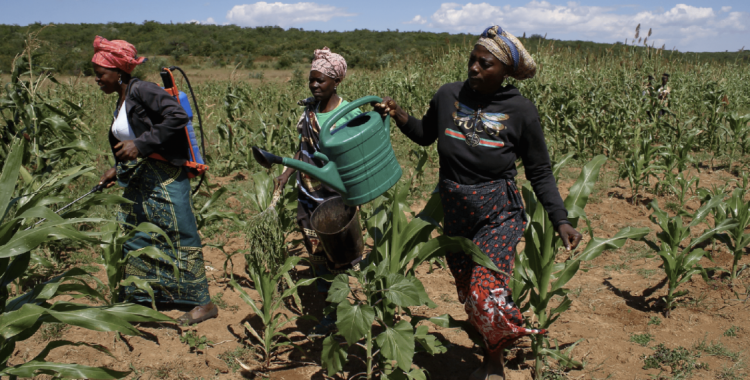"Although we are still falling short of the intended targets, the 2023/2024 agricultural year was characterized by production levels and positive growth, which encourages us, despite not yet covering our needs", says a note from the ministerial entity to which Lusa was accessed on Tuesday.
Agricultural activity recorded global growth of around 6 percent compared to the previous year's campaign and data indicates global agricultural production of 28,034,791 tonnes of products, with tuber roots leading the production.
The root and tuber chain (with a production of 14.5 million tons) grew by 6.1 percent, the production of legumes and oilseeds grew by 3.4 percent, vegetables (7.1 percent), fruits (6.3 percent) and commercial coffee with production of 7,584 tons and growth of 27 percent compared to the previous year.
According to the ministerial department, in this document presented on Tuesday at an end-of-year greeting ceremony, the interest of other countries in national coffee is growing every day.
At least 2,160 tons of commercial coffee were exported in 2024, an increase of around 51.3 percent compared to 2023, with 21 companies involved in the export process, with Portugal, Poland, Italy, Belgium and Lebanon as their main destinations, refers.
From January to October this year, Angola produced a total of 208,278 tons of meat, 1.7 billion units of eggs and 4.4 million liters of milk, with a "relevant impact" on the beneficiaries.
In the field of agronomic research, within the scope of the Agricultural Productivity Project for Southern Africa, the country is completing the construction of the Regional Cassava Leadership Center, in Malanje province, which aims to support cassava research in countries in the region.
The construction of the Bioveterinary Center and Vaccine Factory for cattle, poultry and goats is also underway in the province of Huambo, the project of which should begin by the end of 2025.
This fully functioning project will make Angola an independent producer of vaccines for the main diseases of animal origin observed in the region, points out the Ministry of Agriculture and Forestry.
Continuing with the promotion of grain production, notably corn, wheat, rice, soybeans and sunflower and promoting their industrialization, continuing technical assistance actions for peasants, through the implementation of field schools, and reestablishing the Food Safety Secretariat are among the actions to be developed in 2025.







